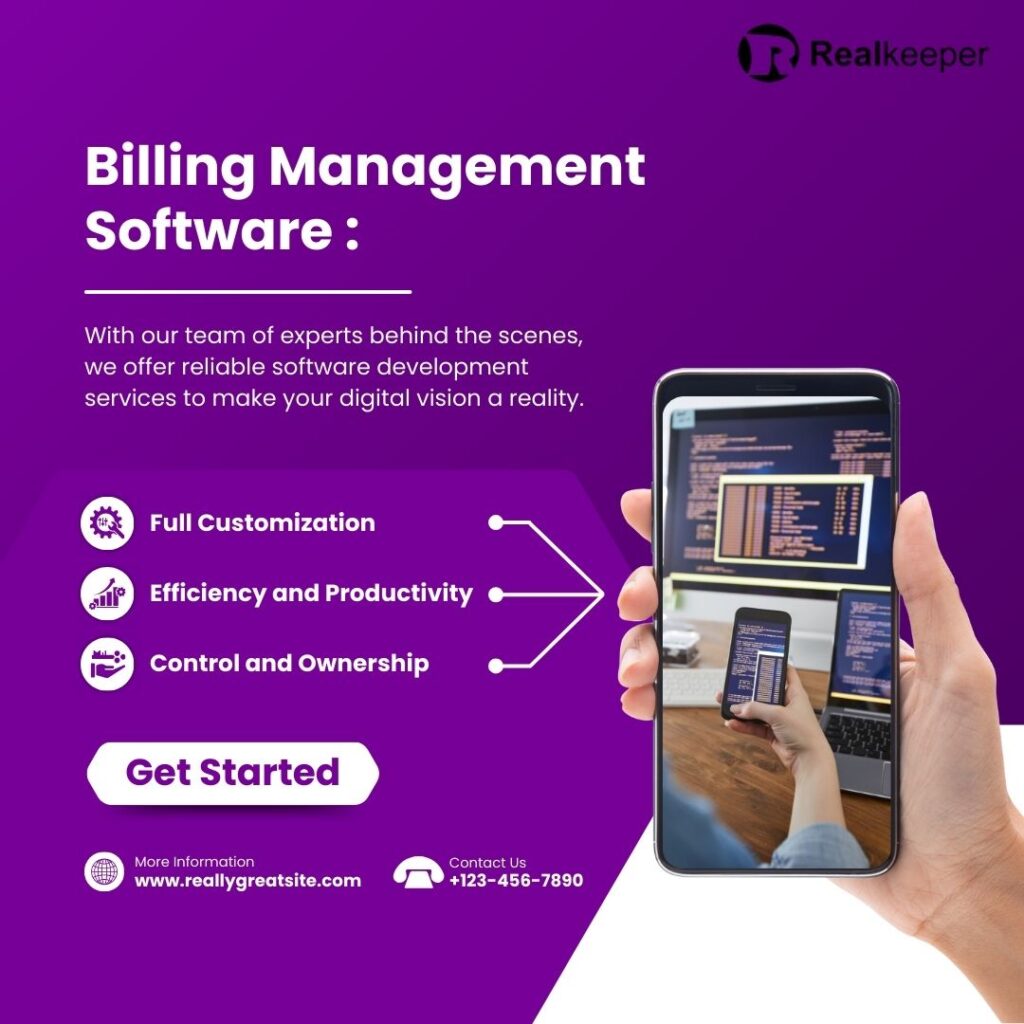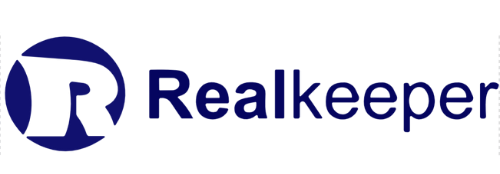
Title: Revolutionizing Financial Operations: A Comprehensive Guide to Billing Software
In the ever-evolving landscape of business management, efficiency and accuracy are paramount. Billing software, an essential tool for modern businesses, offers a transformative approach to managing invoicing, payments, and financial transactions. This blog explores the concept of billing software, its key features, benefits, and highlights some of the top solutions available today.
What is Billing Software?
Billing software is a specialized application designed to streamline the process of generating, managing, and processing invoices and payments. It automates various aspects of the billing cycle, from creating invoices and sending them to customers to tracking payments and managing accounts receivable. By reducing manual effort and minimizing errors, billing software helps businesses improve efficiency and maintain financial accuracy.
Key Features of Billing Software
- Automated Invoicing
One of the most crucial features of billing software is automated invoicing. This functionality allows businesses to generate and send invoices automatically based on predefined schedules. Users can set up recurring billing for subscription-based services, customize invoice templates to reflect brand identity, and automate follow-ups for overdue payments. This automation not only saves time but also ensures that invoices are consistently accurate and delivered promptly. - Payment Processing
Integrated payment processing is another vital feature. Modern billing software supports multiple payment methods, including credit cards, ACH transfers, and online payment gateways. This flexibility allows businesses to offer convenient payment options to their customers and facilitates faster payment collection. Payment processing integration also helps in reconciling transactions and managing cash flow more effectively. - Expense Tracking
Effective expense tracking is essential for maintaining a healthy financial system. Billing software often includes tools for recording and categorizing business expenses, whether they are one-time purchases or recurring costs. By tracking expenses alongside billing activities, businesses can gain a comprehensive view of their financial situation, make informed decisions, and streamline tax preparation. - Reporting and Analytics
Comprehensive reporting and analytics are key to understanding financial performance. Billing software provides various reports, such as revenue summaries, outstanding invoices, and payment histories. Advanced analytics features offer insights into billing trends, customer payment behavior, and financial health. These insights help businesses identify opportunities for improvement, optimize pricing strategies, and enhance overall financial management. - Integration Capabilities
Seamless integration with other systems is crucial for an efficient billing process. Many billing software solutions offer integration with accounting software, CRM systems, and e-commerce platforms. This integration ensures that data flows smoothly between different systems, reduces manual data entry, and enhances overall operational efficiency. For example, integrating with a CRM system can help synchronize customer information and track billing-related interactions. - Customer Management
Effective customer management is a core component of billing software. Features such as customer profiles, payment terms, and billing history help businesses manage their relationships with clients. By maintaining accurate customer records and tracking interactions, businesses can provide better service, manage credit terms, and follow up on overdue payments more effectively. - Multi-Currency and Multi-Language Support
For businesses operating on a global scale, multi-currency and multi-language support are essential. Billing software with these features enables businesses to handle transactions in various currencies and languages, accommodating international clients and expanding market reach. This support simplifies the billing process for global transactions and enhances customer experience. - Security and Compliance
Data security and regulatory compliance are critical concerns for any billing process. Billing software typically includes robust security measures, such as encryption, secure data storage, and user access controls. Compliance features ensure that the software adheres to relevant regulations, such as GDPR for data protection and PCI-DSS for payment security. By prioritizing security and compliance, businesses can protect sensitive financial information and avoid potential legal issues.
Benefits of Using Billing Software
- Increased Efficiency
Automating billing tasks significantly increases operational efficiency. By reducing manual effort and automating repetitive processes, businesses can save time and focus on more strategic activities. Automated invoicing, payment reminders, and reconciliation streamline the billing cycle and reduce the administrative burden on staff. - Enhanced Accuracy
Accuracy is critical in billing to ensure that invoices are correct and payments are processed accurately. Billing software minimizes the risk of human error by automating calculations and data entry. This accuracy helps in maintaining financial integrity and preventing discrepancies that could lead to disputes or delayed payments. - Improved Cash Flow
Effective billing management contributes to better cash flow. By automating invoicing and payment reminders, businesses can accelerate the collection of receivables and reduce the time it takes to receive payments. Additionally, features like payment tracking and reconciliation help businesses monitor their cash flow and manage financial resources more effectively. - Better Customer Experience
A seamless billing process enhances the overall customer experience. Automated invoicing and flexible payment options provide convenience for customers, leading to higher satisfaction and faster payments. By maintaining accurate records and offering efficient billing solutions, businesses can foster positive relationships with clients and improve customer loyalty. - Comprehensive Financial Insights
Billing software provides valuable financial insights through reporting and analytics features. By analyzing billing data and generating detailed reports, businesses can gain a deeper understanding of their financial performance. These insights help in making data-driven decisions, optimizing pricing strategies, and identifying areas for improvement. - Scalability
As businesses grow, their billing needs become more complex. Billing software is scalable and can adapt to increasing transaction volumes and evolving requirements. Whether a business is expanding its customer base or adding new services, billing software can accommodate these changes and support continued growth.
Top Billing Software Solutions
- FreshBooks
Overview: FreshBooks is a user-friendly billing and accounting software designed for small businesses and freelancers. It offers automated invoicing, online payment processing, and expense tracking.
Key Features:
Customizable invoice templates
Recurring billing and subscriptions
Integrated time tracking
Mobile app for managing invoices on the go
Benefits: FreshBooks is known for its intuitive interface and ease of use. Its automation features and mobile accessibility make it a popular choice for independent professionals and small business owners.
- QuickBooks Online
Overview: QuickBooks Online is a comprehensive accounting software with robust billing management capabilities. It provides features for invoicing, payment processing, and financial reporting.
Key Features:
Customizable invoices and payment reminders
Integrated payment processing
Expense tracking and categorization
Detailed financial reports and dashboards
Benefits: QuickBooks Online offers extensive features and integration options, making it suitable for businesses of all sizes. Its comprehensive financial management tools and reporting capabilities are key advantages.
- Zoho Invoice
Overview: Zoho Invoice is a cloud-based billing software designed for small businesses and freelancers. It provides tools for automating invoicing, managing expenses, and tracking payments.
Key Features:
Automated invoice creation and delivery
Time tracking and project management
Multi-currency and multi-language support
Integration with Zoho CRM and other Zoho products
Benefits: Zoho Invoice is known for its flexibility and affordability. Its integration with other Zoho applications and support for international transactions make it a versatile choice for businesses with global operations.
- Xero
Overview: Xero is a cloud-based accounting software with a focus on billing and invoicing. It offers features for automated invoicing, payment processing, and financial reporting.
Key Features:
Recurring billing and automated reminders
Online payment processing
Expense tracking and reconciliation
Integration with over 800 third-party apps
Benefits: Xero's user-friendly interface and extensive integration options make it a powerful tool for managing billing and accounting tasks. Its real-time financial insights and scalability are notable benefits.
- Bill.com
Overview: Bill.com specializes in automating accounts payable and receivable processes. It provides features for managing invoices, payments, and cash flow.
Key Features:
Automated invoice capture and approval workflows
Electronic payment processing and ACH transfers
Integration with accounting software and ERP systems
Cash flow forecasting and reporting
Benefits: Bill.com is ideal for businesses looking to streamline their accounts payable and receivable functions. Its focus on cash flow management and integration with other financial systems are key advantages.
- Wave
Overview: Wave is a free accounting software that includes billing and invoicing features. It is designed for small businesses and freelancers seeking a cost-effective solution.
Key Features:
Unlimited invoicing and recurring billing
Online payment processing
Expense tracking and receipt scanning
Financial reports and analytics
Benefits: Wave's affordability and ease of use make it a popular choice for small businesses and freelancers. Its free invoicing features and integrated financial tools are notable benefits.
- Sage Intacct
Overview: Sage Intacct is a cloud-based financial management software with advanced billing features. It is designed for growing businesses and offers subscription management and revenue recognition tools.
Key Features:
Automated billing and revenue recognition
Subscription and contract management
Multi-entity and multi-currency support
Advanced financial reporting and analytics
Benefits: Sage Intacct is known for its scalability and advanced billing capabilities. It is well-suited for mid-sized to large businesses with complex financial needs.
- Invoice
Overview: Invoice is an online invoicing and billing software designed for businesses of all sizes. It provides tools for managing invoices, payments, and client relationships.
Key Features:
Customizable invoice templates
Recurring billing and subscription management
Time tracking and project management
Multi-currency and multi-language support
Benefits: Invoice flexibility and comprehensive feature set make it a good choice for businesses with diverse billing needs



